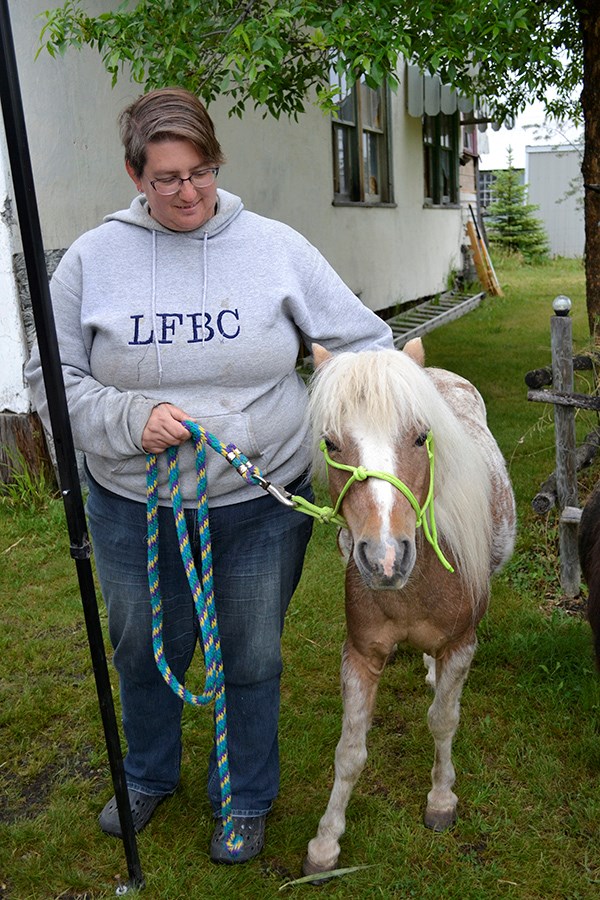When sisters Rhonda and Laura Stock got their first two donkeys in 2011, they quickly fell in love. While they have full-sized horses on the farm, there was something special about the donkeys and they quickly learned that they also had special needs.
Last year they were given Poker, a miniature Palomino horse, who needed to be rehabilitated because of hoof problems. Poker’s hooves had become overgrown and he could barely walk when he first arrived but is now happily running and playing. Laura took her vet assistant certification from the Animal Behavioral College and Rhonda is a farrier, so they are uniquely qualified to provide rehabilitation to the littles, as they call their charges. What began with one miniature horse has now become Happy Little Hooves Pony and Donkey Sanctuary. The sanctuary is located 10 miles west of Estevan, and was officially incorporated January 24, 2019. The sisters quickly realized that there was a need for somewhere to rehabilitate donkeys, ponies and miniature horses and what began as a 2-year plan quickly evolved into a two-week plan. They have grown, with 4 ponies, 2 donkeys, a miniature mule and 8 miniature horses calling the sanctuary home. They are a registered non-profit and have been approved by Animal Protection Services, so when animals are seized or surrendered, Happy Little Hooves becomes their new home.
The first stop for littles with bad hooves is the dry lot. This pen has no green grass, because it is not actually good for the littles. The spring grass and late afternoon grass on a hot day contain very high amounts of natural sugar, which can cause hoof issues if it is a steady part of their diet. The littles require hoof trimming every six to eight weeks. The sugar in a grass diet leads to inflammation of the hoof, and the flare-ups can double the growth, meaning trimming needs to be done every two to three weeks. Stock explains that flare-ups cause the hoof wall (like our finger nail) to become detached from the coffin bone (like our finger bone).  Imagine if your fingernail were to come loose at the tip of your finger, not from the nail bed, but from the actual bone and you had to maintain pressure on the tip of that nail. Because the hoof wall grows so quickly, the weight distribution moves from the heel of the hoof to the front of the hoof, the pain causing their legs to become splayed as they struggle to keep weight of hoof wall. With proper diet, regular hoof trimming, and medication it can take eight months to a year for the entire hoof capsule to grow out properly.
Stock says that many people don’t understand that donkeys and minis are not just smaller versions of a horse and the lack of knowledge leads to hoof and weight issues and also behavior problems. Like small dogs, littles have attitude, and without discipline can result in biting and kicking. Testosterone levels in mini’s lead to big issues if the animal isn’t gelded, something many people don’t take into consideration.
As you can imagine, with the need for a dry pen, quarantine pen, stud pen (all studs are gelded after surrender), a pregnant mare pen and a large pasture for the healthy animals, providing sanctuary isn’t cheap. Add in supplements, farriering, hormone balancers, thyroid meds, anti-inflammatory meds, deworming and treatments for respiratory issues and you have a hefty bill. Oh, and don’t forget the hay!Â
An open house will be held on June 29 from 11 a.m. to 4 p.m. at the sanctuary and more information on sponsoring can be found on Facebook at Happy Little Hooves Pony and Donkey Sanctuary or by calling Laura Stock at 306.421.4720.




